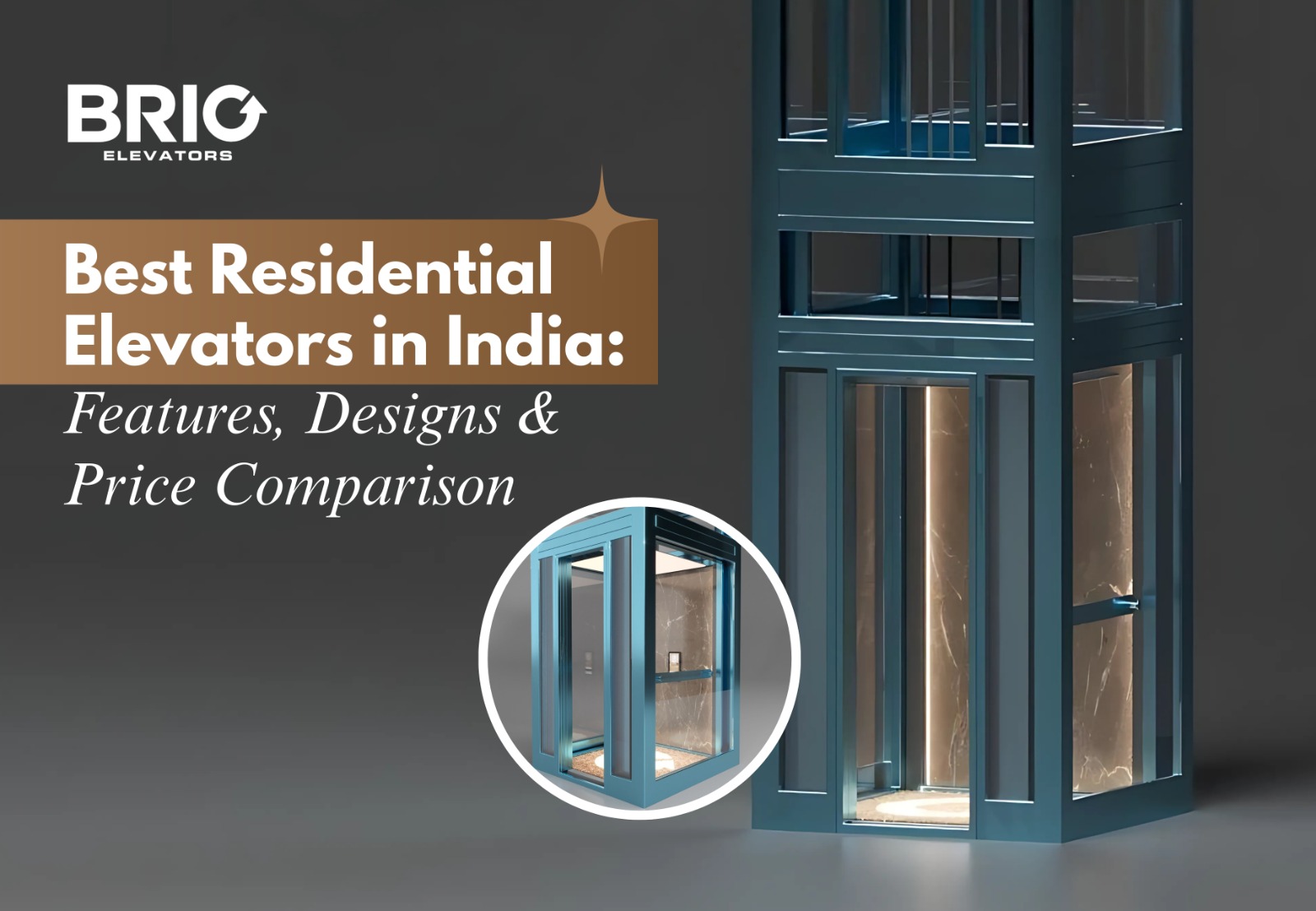
For many homeowners, stairs are more than just steps; they can be a challenge. Whether it’s an elderly family member, a child, or someone recovering from an injury, daily stair climbing can be exhausting and risky. This is where residential elevators in India step in, offering convenience, safety, and a touch of luxury.
With modern homes getting taller and multi-storey apartments becoming the norm, a lift for home is no longer a luxury; it’s a practical necessity. Imagine effortlessly moving groceries, furniture, or even laundry between floors without breaking a sweat. Plus, having an elevator for home adds value and sophistication to your property.
Investing in a residential elevator is a long-term decision, and knowing what to look for can make all the difference. Let’s break down the key aspects:
Most of the best residential elevators in India are designed to fit in compact spaces without requiring extensive renovations. Options like gearless rope drive lifts or hydraulic home elevators can easily integrate into your existing staircase or dedicated lift shaft. A sleek design not only looks modern but also complements your interior decor.
Safety is the top priority when choosing a residential lift elevator. Look for:
These features ensure peace of mind for families, especially those with kids or elderly members.
Modern residential elevators in India are engineered to minimise energy consumption. Gearless motors, regenerative drives, and smart standby modes reduce electricity bills while maintaining smooth and quiet operation.
Home elevators typically support 2–6 passengers, depending on the model. While some are designed for speed to move between floors quickly, others prioritise smooth and silent rides. A careful balance ensures comfort without compromising efficiency.
A lift for home ensures easy access for everyone. Whether you’re carrying groceries, a stroller, or even a pet, a home elevator makes moving between floors effortless. For elderly residents, it dramatically reduces strain and risk of falls.
When it comes to budgeting, the residential elevator price in India varies based on type, size, design, and features. Here’s a rough estimate:
| Elevator Type | Price Range (INR) | Features |
| Hydraulic Home Lift | 8–15 lakh
|
Smooth, low maintenance, compact |
| Gearless Rope Drive Lift
|
12–25 lakh
|
Energy-efficient, silent, modern design |
| Belt Drive Elevator
|
10–20 lakh
|
Space-saving, high performance |
| MRL (Machine Room-Less) Lift
|
15–30 lakh
|
No machine room required, customizable |
Investing in a high-quality elevator for your home ensures durability, fewer repairs, and better resale value for your property.
Opting for a trusted brand like Brio Elevators guarantees:
A residential lift elevator is more than just a convenience; it’s an investment in safety, accessibility, and modern living. Whether you’re planning a new multi-storey home or upgrading your existing space, choosing the right elevators for home can transform your daily life.
Don’t compromise on design, safety, or efficiency—select a solution that blends seamlessly with your lifestyle and home aesthetics.
Ready to elevate your home living experience? Explore Brio Elevators today to find the best residential elevators in India, compare features, and get a personalised quote. Make every floor easily accessible, safe, and stylish!
1. What is the average residential elevator price in India?
The price of a home elevator in India ranges from ₹8 lakh to ₹30 lakh, depending on the type, design, and features. Options include hydraulic, gearless rope drive, belt drive, and MRL lifts.
2. What types of residential lifts are available for homes?
Common types include hydraulic home lifts, gearless rope drive lifts, belt drive elevators, and machine room-less (MRL) elevators, each suited for different home layouts and budgets.
3. Are home elevators safe for the elderly and children?
Yes. Modern residential lift elevators come with safety features like multi-layered emergency systems, backup batteries, door sensors, and intelligent controls to ensure safe operation for all family members.
4. How much space is required for a home elevator?
Most residential elevators are designed to fit compact spaces. Hydraulic and gearless lifts require minimal pit depth and headroom, while MRL lifts need no separate machine room, saving space.
5. Can a home elevator be customised?
Absolutely. Brands like Brio Elevators offer customisable designs, finishes, and controls to match your home aesthetics and functional requirements.
6. Does installing a home elevator increase property value?
Yes. A residential lift adds both luxury and practicality to your home, enhancing convenience, safety, and overall resale value.
7. How long does it take to install a residential elevator?
Depending on the model and complexity, installation typically takes 2–6 weeks, including site preparation, shaft construction, and final setup.
Kennethwes Guest
24 February 2026, 18:12
Post: Hydraulic Lift Systems for Homes: Pros, Cons & Price
Kennethwes Guest
24 February 2026, 18:07
Post: Hydraulic Lift Systems for Homes: Pros, Cons & Price